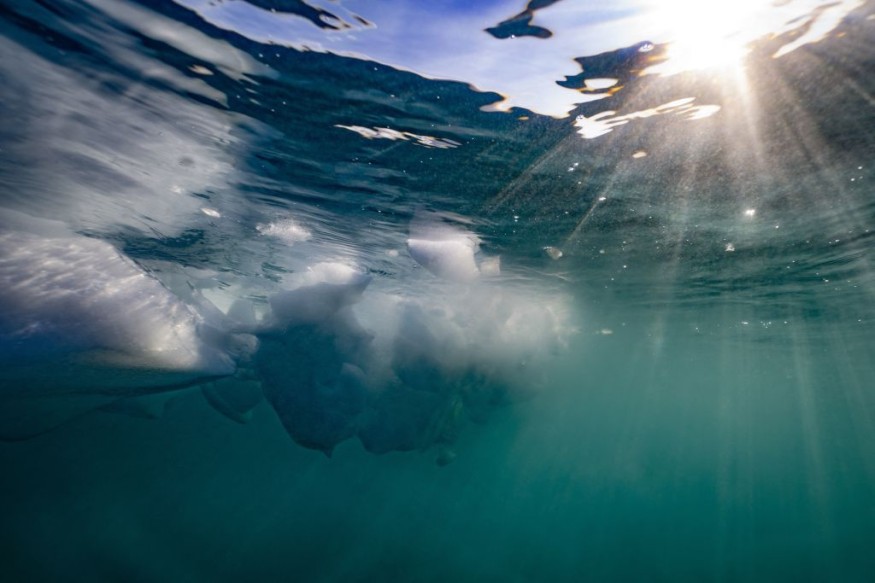
France commits one billion euros to polar research by 2030, as scientific anxiety about the world's melting ice caps and glaciers grows.
A new polar science vessel will spearhead the effort, and France has called for a moratorium on the exploitation of the seabed in polar zones, to which the United Kingdom, Canada, Brazil, and 19 other countries have already agreed.
Threats Are Accelerating
French President Emmanuel Macron made the announcement at the Paris Peace Forum, an annual gathering of governments, NGOs, organizations, and others to discuss global issues such as climate change, children's exposure to internet violence, and challenges to human rights.
The French leader emphasizes the urgency of addressing the issue.
"We are talking about a transformation of the cryosphere [the Earth's ice] that already threatens millions and will threaten billions of the planet's inhabitants with multiple direct and indirect consequences," he added.
Many scientists are concerned about the state of the Earth's polar regions and glaciers, as heatwaves at both poles, which were observed for the first time last year, appear to be becoming more frequent.
The "albedo effect" occurs when the Earth's ice caps reflect much of the sun's light back into space, and melting ice leaves a dark sea that absorbs more heat, making the receding ice a potential tipping point for the climate that would trigger a significant increase in temperature.
According to research, glaciers are melting at an alarming rate across mountains ranging from the Alps to the Himalayas, with many expected to vanish totally by the end of the century.
While human-caused climate change means that glacial mass loss is irreversible in the short term, experts argue that dramatically lowering the usage of planet-warming coal, oil, and gas could reduce future melt.
France, which has glaciers in its Alpine regions as well as land and a science station in Antarctica, has taken the lead in pushing for agreement at this year's UN COP28 climate summit, which begins at the end of this month in Dubai.
Macron also attended a climate finance forum in June, where he joined Barbados Prime Minister Mia Mottley in calling for trillions of dollars of investment in developing nations.
Tensions And Conflict
The summit held in Paris was attended by heads of state, governments, and diplomats from around 40 countries, including China.
Russia was not invited, despite the fact that its territory contains a portion of the Arctic.
States issued a call to action to address climate change caused by humans and biodiversity loss caused by melting ecosystems.
Summit attendees also established a high-level panel to study the impact of the melt on coastal communities facing increasing sea levels and dwindling water resources in hilly areas.
"Conflicts are once again on the agenda, in the Middle East and elsewhere and this makes our relations fragile, but we have to do our best to work closely together, in a peaceful way," Macron said.
Ruth Mottram, a climate scientist at the Danish Meteorological Institute, applauded the call for polar scientific collaboration but said Russia's attack on Ukraine had hampered it.
"It is hard to see that any normalization of relations will happen (or even be desirable) until the war is over," Mottram said.
© 2025 NatureWorldNews.com All rights reserved. Do not reproduce without permission.





